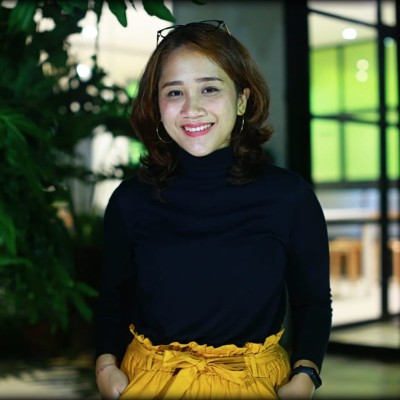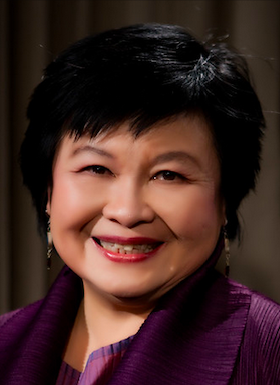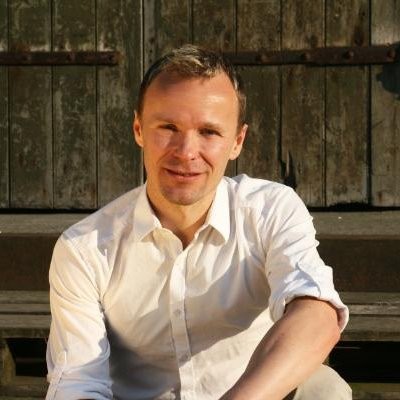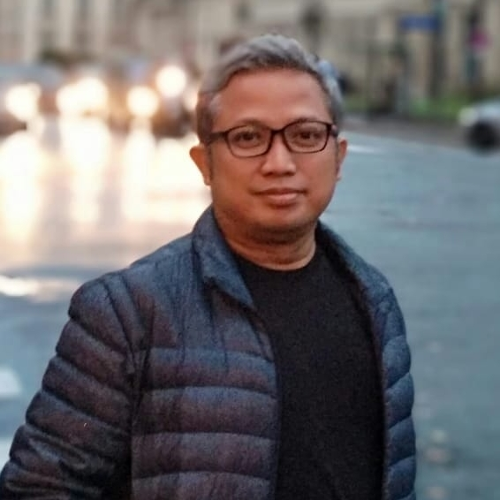Multistakeholder Partnership to Empower Digital Literacy Initiatives
ICT WATCH / SIBERKREASI
Session 335
Develop Critical Thinking and Fight Against Disinformation
Ensuring that all stakeholders have equal representation and involvement during the decision-making process is one of the challenges of multistakeholderism. Because different stakeholders frequently have various degrees of resources and expertise, some may dominate the decision-making process, which can be challenging. To ensure that decisions are taken in the public interest rather than for the advantage of a specific stakeholder group, it may take time to strike a balance between competing interests.
Therefore, a broad group of stakeholders will be gathered for the workshop session to discuss and work together on a strategy for enhancing digital literacy among people and communities. Digital literacy is crucial for strengthening netizens' critical thinking worldwide and combating the hoaxes/disinformation outbreak, including COVID-19 and political issues. The session will also examine the challenges various demographic groups face using and accessing digital technology and provide practical strategies for fostering digital literacy. The workshop will also strongly emphasize increasing engagement between diverse stakeholders to combine their resources and knowledge better.
A discourse on digital literacy today and its significance in society will provide a foundation for the session. The presentation will also address the issues of the gender gap in accessing and using digital technologies. Some references clearly state that women have less opportunity and chance to utilize ICT for a better life than men.
After the panel presentation, participants will be invited to contribute their thoughts and perspectives, focusing on specific aspects of digital literacy, such as digital skills training, access to technology, and digital inclusion. The speakers experienced in these fields will respond to the conversation to identify the best approaches and cutting-edge solutions to each area's problems. The session will also allow participants to interact and look into possible options for collaboration.
Panelists (alphabetical order):
- Dio Herdiawan Tobing, Mr. (World Benchmarking Alliance)
- Ida Ayu Prasasti, Mrs. (ICT Watch - Indonesia)
- Mei Lin Fung, Mrs. (People-Centered Internet)
Moderator / Facilitator:
- Morten Meyerhoff Nielsen, Mr. (UN University) - Moderator
- Donny Utoyo, Mr. (SIBERKREASI / ID-IGF) - Facilitator

CV: https://www.linkedin.com/in/diotobing
Dio Herdiawan Tobing is a Tech-Public Policy enthusiast, passionate about delivering social impact to vulnerable groups in Indonesia and the Southeast Asian/ASEAN region to open pathways and lead them to a sustainable and resilient future. His profile best fit in the management of impact-driven policy project management.
Holding the Head of Public Policy, Asia role at the World Benchmarking Alliance, he oversees institutional policy engagement with crucial Asia governments, international organizations, and partner organizations. He works closely with Thematic Leads to identify opportunities in influencing national or international policies for social good.
As an interdisciplinary person certified by two master's degrees in (LL.M) Public International Law and (M.PP) Public Policy and trained in Country Risk Analysis and Human Rights & Gender, he is empowered to add strategic values to this process. Being a strategic thinker in global affairs with a deep understanding and substantial experience at the grassroots level, he is on a mission to fill the local-international gap in the age of rapid digital transformation. Moreover, believing that the empowerment of the grassroots is essential in building an inclusive and sustainable society, he set up Sustainable to drive tech businesses for good. He may be contacted via e-mail d.tobing [at] worldbenchmarkingalliance.org

CV: https://www.linkedin.com/in/ida-ayu-prasastiasih-dewi-3740b665/
Ida Ayu Prasasti is a Program Director at ICT Watch Indonesia. She is active in digital literacy activities, suicide prevention, empowering women and young people, and multistakeholder partnerships at local and global levels. As a communication and public policy alumnus, she is also active in advocacy and public communication planning & strategies, especially during the pandemic for Jakarta Provincial Government, as well as mental health and suicide prevention campaigns with local& global experts, media and digital platforms.
Currently, she's also actively campaigning for collaboration to combat hoaxes & disinformation, promoting digital security, fostering women's rights in the digital sphere, and strengthening multistakeholder partnerships in Indonesia.
ICT Watch is the pioneer that established one of the first digital literacy campaigns in Indonesia in 2002, called "Internet Sehat" (Cyber Wise). In May 2017 in Geneva, ICT Watch received an international award, The World Summit on the Information Society (WSIS) Winner, from the United Nations (UN) - International Telecommunication Union (ITU). The WSIS committee considers an "Internet Sehat" campaign program an excellent advocacy strategy from-by-for the community. Together with other Indonesian multistakeholder (government, civil society, private sector, academia technical community), ICT Watch initiated the Indonesia Internet Governance Forum (ID-IGF) and SIBERKREASI, the Digital Literacy National Movement. She may be contacted via e-mail sasti [at] ictwatch.id

CV: https://www.linkedin.com/in/meilinfung
Mei Lin Fung is the Chair of the People-Centered Internet and co-founder of the institution with Vint Cerf. She is passionately founding the Impact Network in 2017 and works closely with the IEEE Industry Connections Social Impact Measurement, which she is chair of. Her role incorporates the voice of the people and the voice of the community, which we believe is vital in measuring social impact for sustainable outcomes.
She joined the 200,000-member Health Occupation Students of America/Future Health Professionals as a point person for Global Network Outreach. As co-founder of the California Health MRC - Medical Reserve Corps - she is pioneering youth engagement in assuring a healthy future for generations to come.
In her final role as Socio-Technical Lead within a four-year project for the US Dept. of Defense to look at the Future of Health, she was the subject matter expert for Networked Improvement Communities. She designed Roundtables for government and community leaders to devise the Healthy Community Collaboratives of America. The leaders we convened work with budgets representing over 50% of all spending in the US on Healthcare. She may be contacted via e-mail mlfung [at] gmail.com

CV: https://www.linkedin.com/in/mortenmeyerhoff
Morten Meyerhoff Nielsen is an EGOV Adviser at the United Nations University, Operating Unit for Policy-Driven Electronic Governance (www.egov.unu.edu), an international think tank on the digital transformation of the public sector, in Portugal.
He has a broad and in-depth insight into the potential and challenges of the digital transformation of the public sector and society at large. Including the innovative application of technology, process, and organizational re-engineering to increase service efficiency and user-friendliness, transparency and inclusiveness of public services, and user engagement in both continuous service improvement and policy design. To this comes tech stacks, standards, and governance models.
With the International Social Security Association, Morten is leading the research on the impact of the digital transformation of social security, and how to improve the digital inclusion of marginalized communities. He is the contact point for both UNICEF and the WSIS Forum at UNU-EGOV and regularly works with the European Commission, ITU, OECD and World Bank.
Morten regularly runs executive training programmes on digital transformation and is a guest lecturer at universities in Estonia, Poland, Portugal and the Netherlands and currently contributing to executive training related to digital transformation and anti-corruption in Egypt. He may be contacted via e-mail meyerhoff [at] unu.edu
.jpg?maxwidth=500)
CV: https://www.linkedin.com/in/donnybu
Donny Utoyo is Chairperson of SIBERKREASI (for the year 2023 - 2025), the Digital Literacy National Movement initiated by Indonesian multistakeholder on October 2017. The movement has more than 120 members from the government, civil society, academia, the private sector, and technical communities that collaboratively facilitate and provide the Indonesian community's digital literacy campaign/program. He is also a co-founder and board of advisory for the ICT Watch. This Indonesian civil society organization introduced one of Indonesia's digital literacy concepts in 2002, called Internet Sehat (Cyber Wise). SIBERKREASI (in 2020) and ICT Watch (in 2017) won the WSIS Prizes Winner for their digital literacy initiative.
In 2012, Donny was awarded Ashoka Fellowship because of his focus on freedom of online expression, cyber activism, and citizen journalism. In addition to his involvement in ICT Watch, Donny is one of the founders of the Southeast Asia Freedom of Expression Network (Safenet) and the Indonesia Internet Governance Forum (ID-IGF). Previously he assisted the Indonesian Ministry of Communication and Information Technology (MCIT) as the Expert Staff to the Minister, focusing on digital literacy and internet governance issues. As the official representative of Indonesia for the Global Internet Governance Forum (IGF), he routinely attends the WSIS and IGF meetings.
He is also an active Internet Society (ISOC) member and has worked as an ICT journalist for almost ten years. Nowadays, his daily activities are focused on the digital literacy capacity development for Indonesia society/community, mainly focusing on the issue of digital security, data privacy protection, and combating hoaxes/disinformation. He often travels around Indonesia to deliver and discuss perspectives, knowledge, and experiences about the Internet and digital technology with people. He may be contacted via https://donnybu.id or e-mail dbu [at] donnybu.id
-
 C4. Capacity building
C4. Capacity building
-
 C10. Ethical dimensions of the Information Society
C10. Ethical dimensions of the Information Society
The Capacity Building Action Line aims to promote the development of human capacity in information and communication technologies (ICTs) and enhance the skills of individuals and institutions to use these technologies effectively. Digital literacy initiatives are essential to this action line, as they focus on providing individuals with the skills and knowledge necessary to use digital technologies effectively.
The session discussed ways to strengthen digital literacy initiatives through partnerships between multiple stakeholders, including governments, civil society organizations, and the private sector. These partnerships are critical to ensuring that digital literacy programs are accessible, relevant, effective, and reach as many people as possible.
The Ethical Dimensions of the Information Society Action Line focuses on promoting ethical considerations in developing and using ICTs. This includes privacy, security, hoax/disinformation, and freedom of expression. Digital literacy initiatives play an important role in promoting ethical considerations. They can help individuals understand the potential risks and benefits of using digital technologies and make informed decisions about how to use them.
-
 Goal 4: Ensure inclusive and equitable quality education and promote lifelong learning opportunities for all
Goal 4: Ensure inclusive and equitable quality education and promote lifelong learning opportunities for all
-
 Goal 16: Promote just, peaceful and inclusive societies
Goal 16: Promote just, peaceful and inclusive societies
Goal 4 of SDGs ensures inclusive and equitable education and promotes lifelong learning opportunities. Digital literacy initiatives play an important role in achieving this goal by providing individuals with the skills and knowledge necessary to participate fully in a digital world. By improving digital literacy, individuals can access educational resources, participate in online learning, and improve their economic and social opportunities.
The session also links to Goal 16 of the SDGs, which aims to promote peaceful and inclusive societies for sustainable development, provide access to justice for all, and build effective, accountable, and inclusive institutions at all levels. Digital literacy initiatives can contribute to achieving this goal by promoting access to information and communication technologies (ICTs) and improving individuals' digital skills. This can help individuals participate more fully in society, engage in democratic processes, and access justice and other public services online.